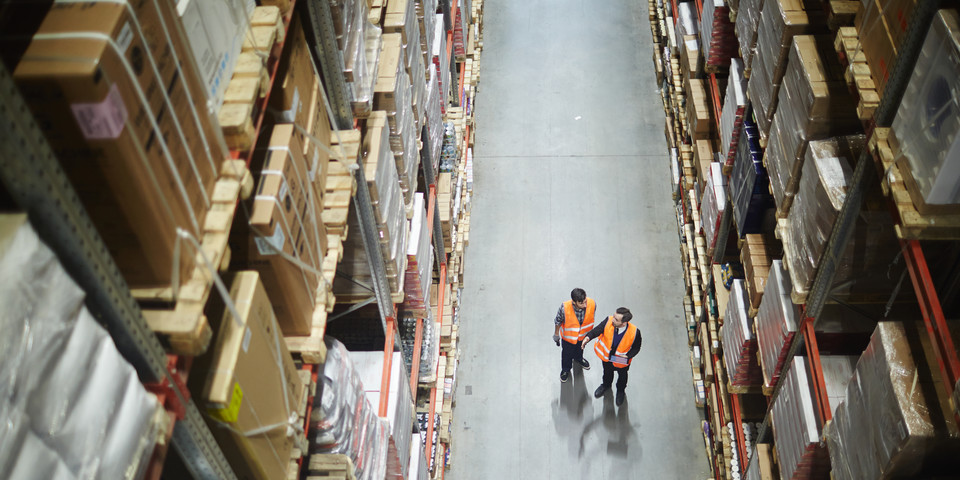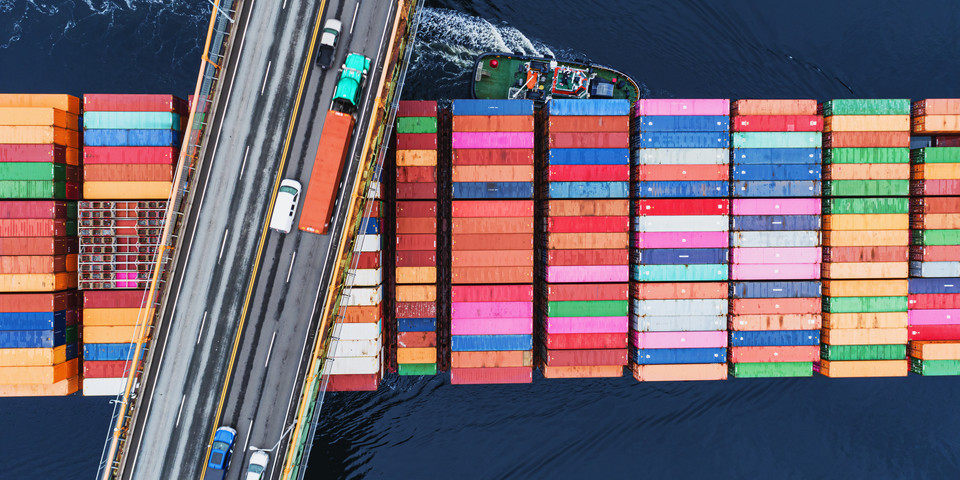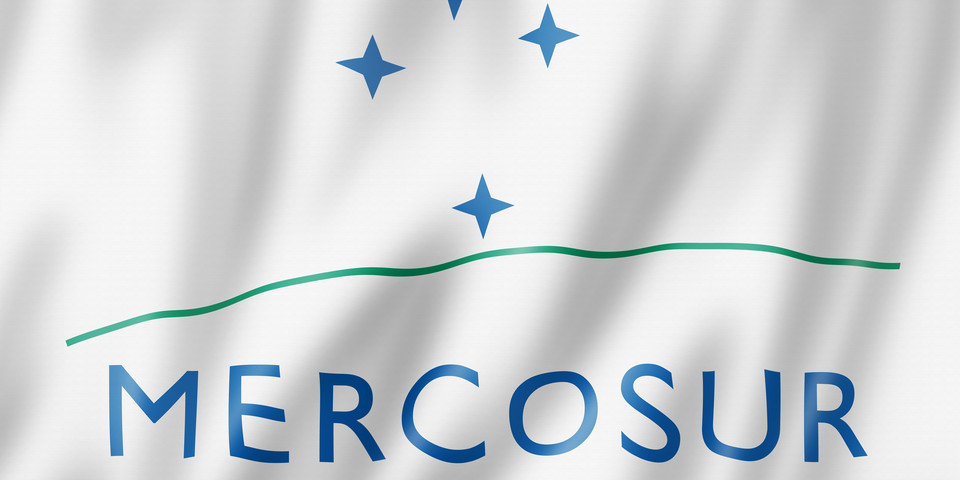Reports
Reports on trade policy and internal market issues by the National Board of Trade, Sweden, are listed here. You are welcome to download them free of charge. If you are looking for a specific topic, use Search at the top of this page, then filter on Publications.
-

Lessons from the pandemic – Designing a Single Market crisis management mechanism
Published: 2022
Despite being heavily tested during the COVID pandemic, the Single Market proved to be resilient. But even more can be done to strengthen the Single Market in times of crisis.
-

Supporting the Green Transition through Regulatory Cooperation
Published: 2022
In this analysis, the National Board of Trade Sweden investigates the potential for enhanced transatlantic regulatory cooperation to support the green transition within the framework of the EU-US Trade and Technology Council (TTC).
-
The EU Proposal for an Anti-Coercion Instrument
Published: 2022
The purpose of this memo is to get a better understanding of the EU proposal on anti-coercion. The National Board of Trade points out some of the most immediate challenges and gives recommendations on how to minimise the proposal’s negative effects for international trade and trade policy.
-

The Economics of the EU’s Trade Defence Instruments – Winners and losers of anti-dumping policies
Published: 2022
EU producers do not benefit from EU anti-dumping measures. There are no signs of regained market shares or that EU firms are able to raise prices on targeted goods. This is shown by a new analysis from the National Board of Trade, Sweden.
-
A single market ombudsman in every EU state
Published: 2022
Since its inception, some thirty years ago, the Single Market has been affected by a huge compliance deficit. The cost of non-compliance for goods and services alone is today 700 billion euros.
-

Stronger Integration and Enhanced Free Movement in the Nordic Region
Published: 2022
For decades, people in the Nordic countries have been able to move freely and trade services and goods across borders. COVID-19 showed us that this freedom cannot be taken for granted. In this report, the National Board of Trade Sweden identifies several areas where Nordic co-operation can be improved.
-

Learning by using free trade agreements
Published: 2022
This report focuses on the trade aspects of the EU–South Korea free trade agreement. It analyses imports and the utilisation of available tariff preferences by Swedish importers between the years 2008 and 2018. Jonas Kasteng, one of the authors of the report, tells more.
-

EU Trade Defence – The unintended effects of anti-dumping measures
Published: 2021
When the EU imposes anti-dumping measures, the idea is to mitigate harm for firms in the EU. However, this new analysis from government agency National Board of Trade Sweden, shows that the production and sales of European companies do not increase. The price of the goods rises to the disadvantage of consumers.
-

Trade and climate change
Published: 2021
The WTO and its members can do a lot to promote climate goals. In this report, the Swedish government agency National Board of Trade, highlights issues that WTO members might focus on and different legal forms an agreement might take. Emilie Eriksson, legal adviser and co-author of the report, tells more.
-

A Post Brexit Analysis: Firm and Consumer Use of the EU-United Kingdom Free Trade Agreement
Published: 2021
In January 2021, the United Kingdom left the EU’s Internal Market, and it became more difficult for Swedish firms to import from the United Kingdom. At the same time, the free trade agreement between the EU and the UK came into force and this means, among other things, that firms can continue to make duty free imports...
-

An EU trade policy for geopolitical ends
Published: 2021
Do geopolitical considerations require an EU trade policy that limits trade and economic integration to a greater extent than today? In light of increased geopolitical tensions, the National Board of Trade has analysed the connection between trade and security.
-

How Companies Use Free Trade Agreements
Published: 2021
The EU's free trade agreement with South Korea, one of the most economically important free trade agreements, has now been in force for ten years. The National Board of Trade Sweden has asked companies how they use this free trade agreement. Senior Adviser Jonas Kasteng, one of the authors of the report, tells more.
-

Trade policy and policy for responsible business conduct
Published: 2021
This report provides an overview of reasons why increased coherence between trade policy and policies to promote responsible business conduct creates synergies leading to more responsible, transparent, and resilient global value chains and in turn a more sustainable economic recovery.
-

The Future of EU Trade Policy – a programme for action
Published: 2020
This is the National Board of Trade's view of how the EU's trade policy should be developed. It is based on a response to the European Commission as part of the review of the trade policy. Anders Ahnlid, Director-General of the National Board of Trade Sweden, tells more.
-

Analysis of the EU–Mercosur Free Trade Agreement
Published: 2020
The EU trade agreement with the Mercosur countries, Argentina, Brazil, Paraguay and Uruguay, is an association agreement of which trade is one part. The National Board of Trade has reviewed the agreement in a number of areas, sectors, and goods, and analysed the effects that the agreement may have.
-

Improving economic resilience through trade
Published: 2020
How should the EU secure the supply of goods during a crisis? How should trade policy be designed to improve economic resilience? These are questions discussed by the National Board of Trade Sweden in a new report.
-

Trade barriers to goods and services important for climate action – and opportunities for reform
Published: 2020
The EU aims to be climate-neutral by 2050. To reach that goal, all policy areas must be mobilised, including trade policy. The National Board of Trade has analysed the role of trade policy in climate action.
-

Platform Liability in the EU: A Need for Reform?
Published: 2020
The EU e-Commerce Directive, the legal framework for online services in the Internal Market, is set to be updated. In this report, the National Board of Trade Sweden, discusses the arguments for and against a more large-scale reform of the level of liability for platforms
-

The use of industrial subsidies by major economies
Published: 2020
A great number of industrial subsidies are currently used by the EU, China and the US. This is despite the fact that many types of subsidies are economically harmful and could disrupt global trade. The National Board of Trade Sweden has studied the current use of industrial subsidies by major economies and how it is...
-

Border Carbon Adjustments
Published: 2020
Imported products will face the same cost for greenhouse gas-emissions as products produced within the EU. That is the basic idea of a proposal that the European Commission is considering. The National Board of Trade has analysed how the EU could implement such a system and what it would mean for trade and for...
